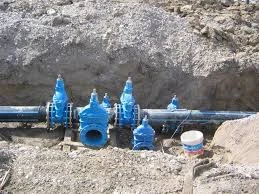ડીસેમ્બર . 03, 2024 17:44 Back to list
polypropylene panel
Understanding Polypropylene Panels Properties, Applications, and Advantages
Polypropylene panels, derived from the versatile polymer polypropylene, have gained substantial traction in various industries due to their unique properties and advantages. This thermoplastic material is known for its durability, flexibility, and resistance to chemical agents, making it an ideal choice for a wide range of applications.
Properties of Polypropylene Panels
One of the standout characteristics of polypropylene panels is their excellent chemical resistance. They can withstand exposure to acids, bases, and various solvents, making them suitable for environments where chemical spills may occur. This attribute is particularly beneficial in industries such as laboratories, pharmaceuticals, and food processing, where maintaining hygiene and preventing contamination is crucial.
Another feature of polypropylene panels is their lightweight nature. Compared to materials like metal or fiberglass, polypropylene offers significant weight savings while still providing a sturdy structure. This lightweight quality not only facilitates easier transportation and installation but also contributes to reduced production costs in manufacturing processes.
Additionally, polypropylene panels exhibit impressive impact resistance, which adds to their durability. They can endure rough handling and resist damage from mechanical stress, providing reliability in applications that involve frequent use or movement. This makes them an ideal choice for packaging, automotive components, and consumer goods, where robustness is paramount.
Moreover, polypropylene is naturally resistant to moisture, mold, and mildew. This eliminates the risk of biological growth, making it well-suited for use in humid environments. Consequently, polypropylene panels are often utilized in the construction of facilities such as clean rooms, food warehouses, and swimming pools.
Applications of Polypropylene Panels
polypropylene panel

The adaptability of polypropylene panels enables their use across diverse sectors. In the construction industry, they serve as wall panels, ceilings, and flooring materials, offering a lightweight yet strong alternative to traditional building materials. They are particularly favored in environments where cleanliness and sterility are vital, such as hospitals and laboratories.
In the packaging sector, polypropylene panels are used to create durable and reusable packaging solutions. Their lightweight and moisture-resistant properties make them an excellent choice for packaging food products, pharmaceuticals, and other sensitive items. The ease of customization allows manufacturers to create panels tailored to specific product requirements, enhancing product safety and visual appeal.
The automotive industry also benefits from the use of polypropylene panels. They are employed in the manufacturing of interior components, dashboards, and door panels due to their lightweight nature, which helps improve fuel efficiency by reducing overall vehicle weight. Additionally, the chemical resistance of polypropylene is advantageous in protecting vehicle interiors from spills and stains.
Advantages of Polypropylene Panels
The numerous benefits of polypropylene panels make them a popular choice among manufacturers and builders. Their cost-effectiveness is a significant advantage; although the initial investment may be similar to other materials, the long-term savings in maintenance and durability make polypropylene an economically sound choice.
Furthermore, their versatility means they can be produced in various forms, including sheets, rolls, and custom shapes. This flexibility in production allows for a wide range of design and application possibilities, catering to specific needs in numerous industries.
Recyclability is another compelling advantage. Polypropylene is a recyclable material, making it an environmentally friendly choice. As industries increasingly seek to minimize waste and promote sustainability, the use of recyclable materials like polypropylene panels aligns with global efforts toward eco-friendly practices.
In conclusion, polypropylene panels represent a remarkable innovation in materials science, offering a blend of durability, lightweight properties, and chemical resistance that caters to various industries. Whether utilized in construction, packaging, or automotive applications, they demonstrate versatility and reliability. As industries continue to evolve, the demand for efficient and sustainable materials makes polypropylene panels a significant player in the market, shaping the future of manufacturing and design.
-
Durable PP Rigid Sheet: Lightweight, Chemical Resistant Solutions
NewsAug.21,2025
-
PVC Grey Sheet for Extraction: Chemical Resistant & Durable
NewsAug.19,2025
-
Durable PVC Pipe Fittings for Plumbing & Irrigation Needs
NewsAug.18,2025
-
HDPE Steel Belt Reinforced Spiral Corrugated Pipe | High Strength
NewsAug.17,2025
-
HDPE Pipe Fittings: Durable, Leak-Proof Solutions
NewsAug.16,2025
-
Premium CPVC Sheet: High-Temp & Chemical Resistant Solutions
NewsAug.15,2025

